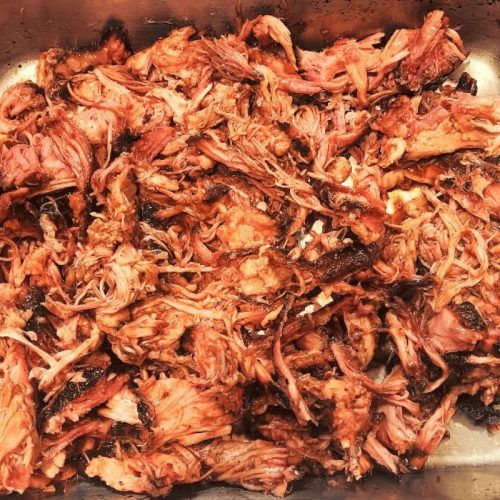Substitute for Apple Cider Vinegar in Pulled Pork: The Key to Flavorful Cooking
When it comes to making mouthwatering pulled pork, apple cider vinegar is often hailed as an essential ingredient. Its tangy flavor and acidity not only enhance the taste but also help tenderize the meat, making it juicy and flavorful. However, what if you find yourself out of apple cider vinegar or have a dietary restriction that prevents you from using it? No need to fret! we’ll explore some effective substitutes for apple cider vinegar that can elevate your pulled pork dish without compromising on flavor.
Understanding the Role of Apple Cider Vinegar
Before diving into substitutions, it’s important to understand what apple cider vinegar brings to the table. Its acidity works wonders in breaking down the meat fibers, resulting in tender pulled pork. In addition, its fruity notes complement the spices and sweetness often used in pulled pork recipes, creating a balanced flavor profile.
Top Substitutes for Apple Cider Vinegar
1. White Wine Vinegar
One of the best substitutes for apple cider vinegar is white wine vinegar. It has a similar acidity level and offers a mild, fruity flavor that can seamlessly replace apple cider vinegar in your recipe. Use it in a 1:1 ratio; it will provide a similar tanginess that keeps your pulled pork delicious.

2. Rice Vinegar
Another excellent substitute is rice vinegar, particularly the unseasoned variety. It is slightly sweeter and less acidic than apple cider vinegar, which might result in a somewhat different taste, but it can still work well in pulled pork. If you choose rice vinegar, consider adding a touch of sugar or honey to replicate the sweetness of apple cider vinegar.
3. Lemon Juice
For those who prefer a fresher flavor, lemon juice can be a fantastic alternative. While it is more acidic than apple cider vinegar, it can impart a zesty flavor to your pulled pork. Use it sparingly; start with half the amount and adjust according to your taste preferences.
4. Balsamic Vinegar
Balsamic vinegar is richer and slightly sweeter than apple cider vinegar, making it a unique substitute. While it can impart a different flavor profile, it can add depth to your dish. Keep in mind that when using balsamic vinegar, you might want to reduce any added sugars in your recipe to maintain balance.
5. Red Wine Vinegar
Last but not least, red wine vinegar offers another viable option. Similar in acidity to apple cider vinegar, red wine vinegar has a deeper flavor that can enhance the savory notes in pulled pork. Use it as a direct substitute in your cooking.
Tips for Substituting
When substituting for apple cider vinegar, consider the following tips:
- Start Small: Begin with a lesser amount than what you would use for apple cider vinegar to avoid overpowering the dish. You can always add more if needed.
- Balance Flavors: Since some substitutes, like balsamic and rice vinegar, have different sweetness profiles, adjust the other ingredients in your sauce or rub to achieve the desired taste.
- Taste as You Go: The best way to ensure a flavorful outcome is to taste your pulled pork at different stages of cooking, adjusting the ingredients as necessary.
while apple cider vinegar plays a significant role in creating succulent and flavorful pulled pork, there are several effective substitutes available. From white wine vinegar to lemon juice, you can experiment with various alternatives to find what suits your taste best. So next time you’re out of apple cider vinegar, remember these substitutes, and don’t hesitate to take your pulled pork to new heights of flavor! Happy cooking!













